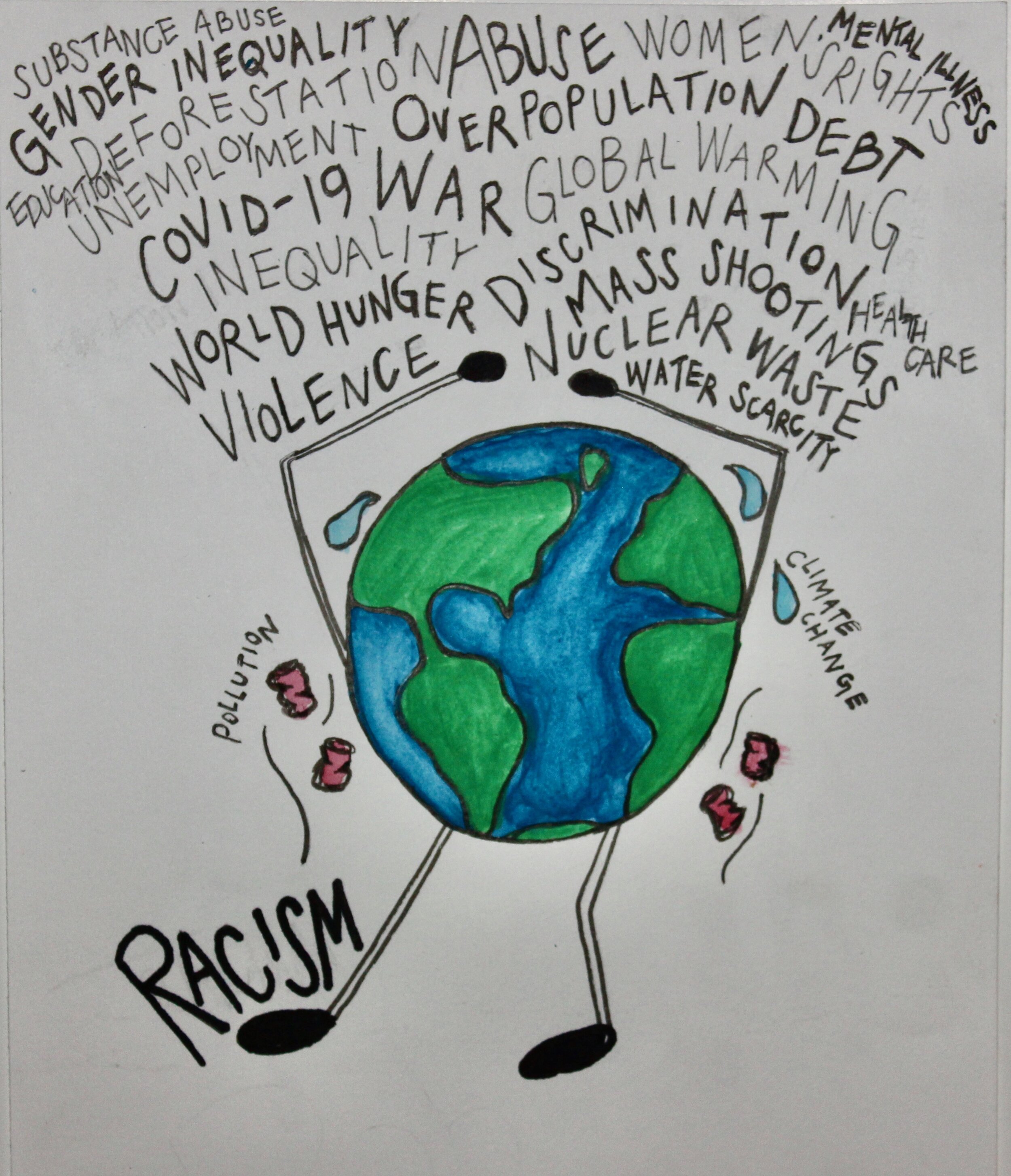to kick the can down the road:
put off confronting a difficult issue or making an important decision, typically on a continuing basis
Recently, but prior to George Floyd’s death, these two sentences came to mind.
No more kicking cans down the road. There is no more road left.
With those words came an image. An accumulation of cans piled up against a barrier. Each can had a word on it that identified one of those difficult issues and important decisions that have persistently been put off. Cans that we have continued to kick down the road. I could see the cans. It took longer for the barrier that stopped them to come into view. Was it a brick wall? One of those concrete barriers you see on the New Jersey turnpike? Or maybe, the gates around the White House?
Squinting my inner eyes, I finally saw it. The barrier was the Earth herself, drops of sweat on her weary brow from the effects of climate change, wearing a mask like the ones we wear to protect one another from spreading COVID-19. The global pandemic has exposed this pile of cans for what it is. The accumulation of years of unwillingness to do the right thing, take the long view, and reckon with our own tendencies to look out for me and mine, while looking away from them and theirs.
Then George Floyd was murdered.
He pleaded with the man with the knee on his neck, telling him repeatedly, that he couldn’t breathe. He pleaded until he ran out of air. And then he was dead.
The Earth, against which all of those cans have been kicked, is telling us that she can’t breathe.
Words alone wouldn’t communicate what I was thinking and feeling, and while I might have a bit of a way with words, not so much with colored pens and pencils. That’s when I called my friend Willa. A sophomore in high school with a heart that is deep and wide, Willa has a keen intellect, and a grasp of the world far beyond her years. I want to be like Willa when I grow up.
I asked if she would consider drawing something to capture what I had seen in my mind’s eye.
She would.
And she did.
Except not exactly.
She took what I said, filtered it through her own lens, and came up with something so much better. Something more powerful, and disturbingly accurate—the Earth in full protest. Willa saw what I couldn’t. The cans are not heaped in a pile waiting to be picked up. It’s too late for that. They’ve all ruptured. Their contents have spilled out all over everything, and we have to deal with the mess we have made of the world. Starting with the racism that has been laid bare. In my mind, racism has been its own separate issue. That’s because I am white. To anyone who is not white, the impacts of racism are felt within the context of every other issue filling the skies above the protesting Earth. Yes, white people are impacted by these issues too. But not simply because they are white.
No more kicking cans down the road. There is no more road left.
Earth is calling us to action. To not only take to the streets in protest against what is wrong, but to lace up our shoes and get to work for what is right.
Look at her.
Feet firmly planted, her fists raised in defiance, she is simply not going to take it any more.
We can’t either.




